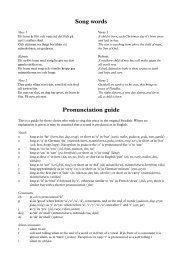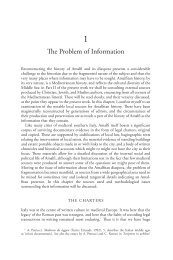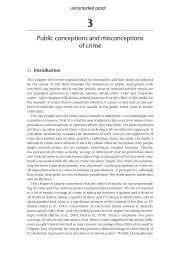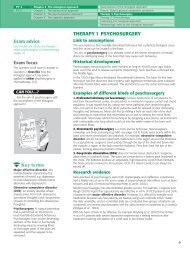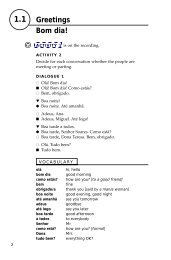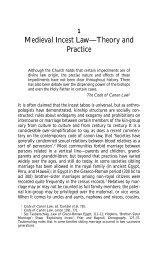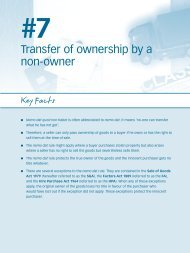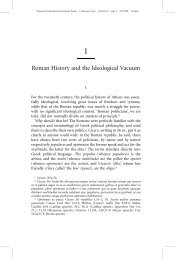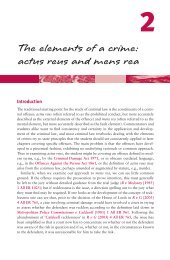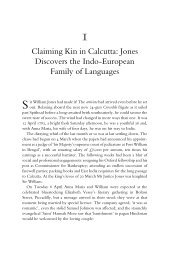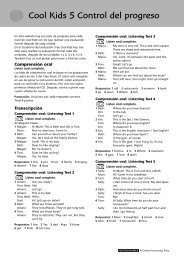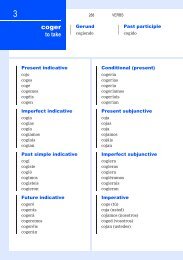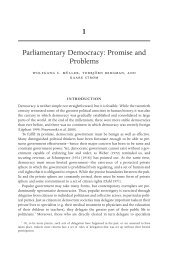Chapter 11 The Tort of Negligence - OED-update - Oxford University ...
Chapter 11 The Tort of Negligence - OED-update - Oxford University ...
Chapter 11 The Tort of Negligence - OED-update - Oxford University ...
You also want an ePaper? Increase the reach of your titles
YUMPU automatically turns print PDFs into web optimized ePapers that Google loves.
<strong>Chapter</strong> <strong>11</strong> <strong>The</strong> <strong>Tort</strong> <strong>of</strong> <strong>Negligence</strong> 363<br />
also establish that the defendant broke his duty <strong>of</strong> care. He must prove that the defendant<br />
did something that a reasonable man in the circumstances would not have done, or<br />
that the defendant failed to do something that a reasonable man in the circumstances<br />
would have done.<br />
Standard <strong>of</strong> Care<br />
<strong>The</strong> standard <strong>of</strong> care is an objective test. <strong>The</strong> defendant must act with the degree <strong>of</strong> care<br />
and skill expected from a reasonable person. It is no defence for the defendant to claim he<br />
is inept or unskilled. A learner driver owes the same objective standard <strong>of</strong> care to his passengers<br />
and other road users as every other driver. His lack <strong>of</strong> experience is not taken into<br />
account, and the standard <strong>of</strong> care he is judged by is the same as that <strong>of</strong> a competent driver.<br />
Nettleship v Weston (1971)<br />
Facts: <strong>The</strong> claimant agreed to teach the defendant to drive. On the third lesson the defendant<br />
hit a lamp post and the claimant was injured.<br />
Decision: <strong>The</strong> duty <strong>of</strong> care that a learner driver owed to other passengers and the public was<br />
the same objective standard as any other driver. <strong>The</strong> claimant was liable regardless <strong>of</strong> the fact<br />
that she was an inexperienced driver.<br />
Standard <strong>of</strong> care owned by skilled defendants<br />
<strong>The</strong> standard <strong>of</strong> care expected by pr<strong>of</strong>essional persons is the standard that a reasonably<br />
competent person in that pr<strong>of</strong>ession would show. If a defendant claims to have special<br />
skills, then he is expected to act to the same standard as a person with those skills.<br />
Phillips v Whiteley Ltd (1938)<br />
Facts: <strong>The</strong> claimant contracted a disease after having her ears pierced by the defendant.<br />
Decision: <strong>The</strong> defendant was not liable because the standard <strong>of</strong> care required by the defendant<br />
was that <strong>of</strong> a skilled and competent ear piercer, not a medical practitioner. <strong>The</strong> defendant<br />
had met the standard required.<br />
<strong>The</strong> defendant is judged on the level <strong>of</strong> qualification claimed, not on the amount <strong>of</strong> experience<br />
he has. A defendant who has just qualified and started in a job will be expected to<br />
show the same level <strong>of</strong> care as a competent person holding that post. In Wilsher v Essex<br />
Area Health Authority (1987) the House <strong>of</strong> Lords stated that a doctor should be judged by




